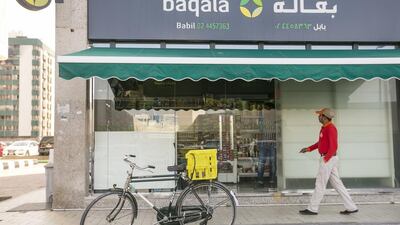‘Innovation” is a common buzzword these days. Scarcely a week passes without an initiative being announced that is tied to what has become a central theme of Government strategy. Quite right too. A country that stands still, like a company, will be rapidly left behind as others forge forward with new ideas.
It’s easy enough for the young to accept the call for innovation. It’s become the new normal. Those who are older – but still young at heart – can also accept it relatively easily. A quarter of a century ago, I was impressed by the way in which my father, then in his eighties, was at ease with the change that was under way all around him. He may not always have adopted it himself, but he had no problem with the change itself.
Since then, the process of change, in technology, as in all aspects of society, has quickened. Those who would hold back the tide, to mix some metaphors, are swimming against the current.
It’s a continual challenge, though, to identify how the best of the past can be preserved through a seamless merging with the innovations of the present, and it’s not always easy for those with a few more decades under their belts to acknowledge, looking back, that their resistance to change was mistaken.
Over the years, I have welcomed some changes but I have inveighed vociferously against others. I think it’s time for me to concede, gracefully, that sometimes I have been completely and utterly wrong.
I rushed into print when the Abu Dhabi Government announced several years ago that strict new procedures were to be introduced for licensing the little shops selling daily needs. Remembering the corner shops of my childhood, whose shopkeepers served as essential elements of the community, providers of small-scale credit, keeping an observant eye on the behaviour and safety of neighbourhood children and much more, I bemoaned the decision to introduce the Baqala system. I feared the appearance of a bland network of Baqalas, with no individual identity and without the close link to the community in which they were situated.
In hindsight, I was wrong. The little Baqalas continue to flourish, playing the same role that their predecessors did, yet better-lit, more hygienic and offering better surroundings. The decision to enforce the change was an innovation that has, most definitely, paid off.
Last weekend, I paid my first visit to the fish market in Abu Dhabi’s Mushrif Mall, run by the Abu Dhabi Fishermen’s Cooperative Society.
When I first heard of the plans to close down the old fish market near Mina Zayed, I let fly with another cannonade of prose. Smelly, it might be, I wrote, but it had character – something then very much in short supply in the rapidly developing capital. How could one welcome a new fish market, I argued, however clean it might be, far from the sea in a fancy new shopping mall?
I could understate by saying that the new market is pretty good. In fact, I was very impressed. It’s clean and tidy, although those with a good sense of smell will certainly notice the fish. Fresh whole or filleted hammour? Imported salmon? Live oysters from France? All are there, along with tanks of live fish and lobsters for sale and a nice well-stocked aquarium outside the entrance to entertain passers-by.
Again, I was wrong. The innovation has worked. While there may no longer be fishing dhows tied up a few metres away, they can still be found at Mina Zayed for those who wish to see them.
I’m not going to pretend that I’m going to welcome every innovation that comes along, not least because of my passion for preserving aspects of the past as components of our heritage.
It’s time, though, for me to admit that many innovations, many new ideas, make good sense and should be embraced with open arms.
Peter Hellyer is a consultant specialising in the UAE’s history and culture


